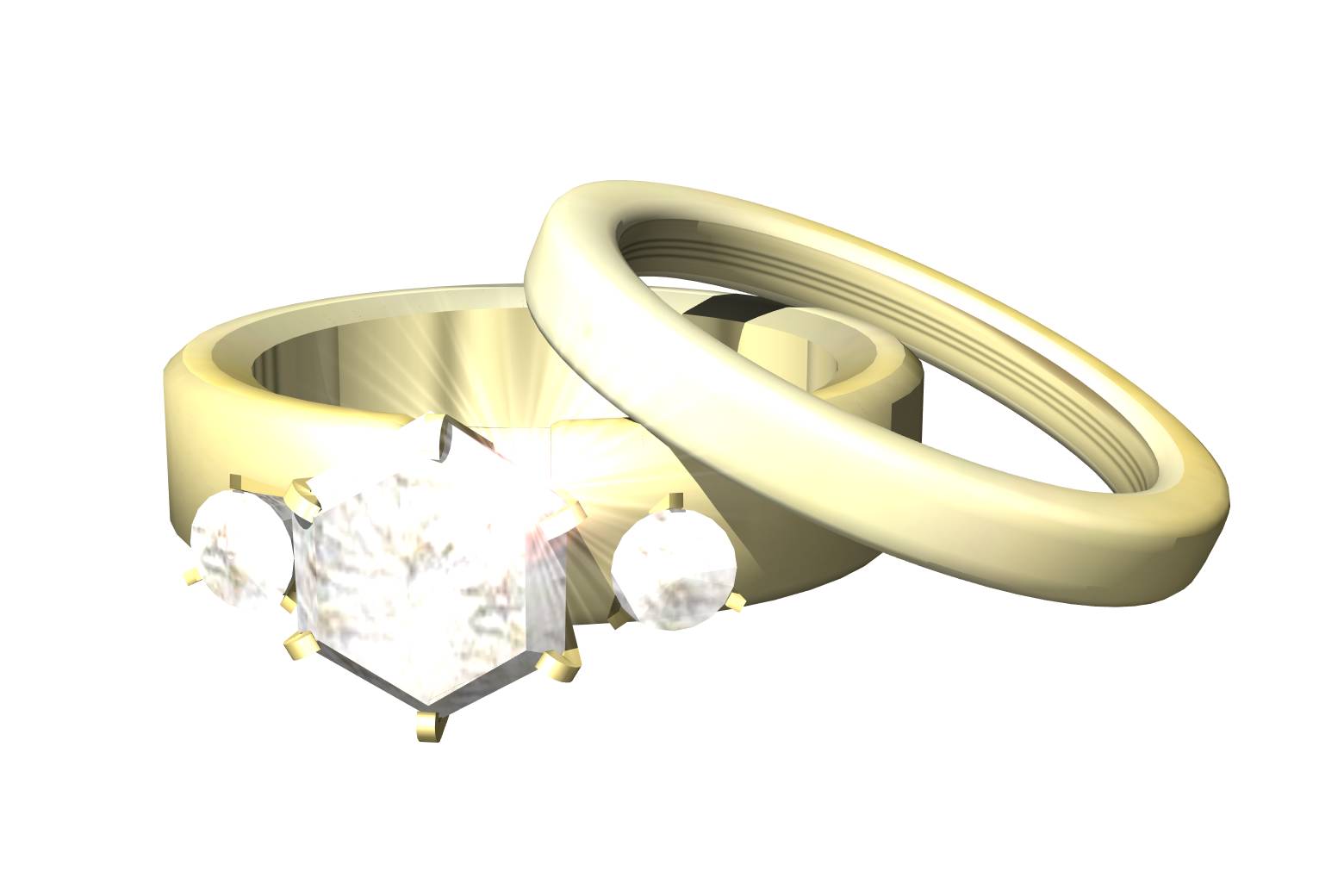Tag Archives: Genesis
Isaac was well-off with wells. How is you well-being?
Genesis 26:1–29, There was a famine in the land. At the well of Lachai-roi (or “the well of the Living One seeing me,” Gen 24:62), Isaac was fruitful. There he met his wife while in communion with YHVH (Gen 24:62–64). Isaac also dwelt there for 20 years, and there he entreated YHVH because of Rebekah’s barrenness (Gen 25:21), and YHVH answered Isaac’s prayer and Rebekah gave birth to twins (Gen 25:22).
But because of famine in the land, Isaac felt compelled to leave Canaan to seek relief in Egypt following the earlier footsteps of his father, Abraham. Is it wise to rely on “Egypt” (a metaphor for the world) for our sustenance instead of trusting YHVH and believing that where he has planted us and blessed us is where we should stay? While en route to Egypt, YHVH gracefully redirected Isaac away from Egypt instructing him rather to sojourn in Gerar (temporarily) where he would continue to bless him and his posterity (Gen 26:2–4). Isaac obeyed YHVH—more or less. Isaac ended up in Gerar located on the border between Canaan and Egypt and dwelt there a long time (not temporarily as YHVH had instructed him, Gen 26:6, 8).
Instead of fully obeying YHVH, it was as if Isaac was hedging his bet between faith and fear, between Canaan, the land of promise, and Egypt, the land of comfort for the flesh man. How often do we halt between two opinions and compromise between YHVH’s will and our own in matters where he has given us clear direction? This place of spiritual indecision and weakness put Isaac in a compromising situation (Gen 26:7). He felt compelled to lie about his wife, thus repeating the sin of his father (Gen 20:1–2).
Compromised obedience puts us in compromising situations where in order to “save our skin” we often have to compromise our values. Though Isaac was out of YHVH’s will, YHVH was still faithful to keep his promises he had made to Isaac earlier (Gen 26:3–4). Isaac was blessed one hundred fold in his wealth (Gen 26:12–14).
Despite YHVH’s blessings, Isaac’s labors were not without difficulty and opposition from an enemy who was intent upon stealing his water wells, which were rightfully his (Gen 26:12–15).
In the arid regions of the Holy Land, wells are essential for survival and prosperity. Wells are a spiritual metaphor for salvation, life, abundance and truth—things the enemy is intent on taking from us (in this light, consider Isa 12:3; 55:1–3; Ps 36:9; John 4:7–14; 7:37–39; 10:10).
Genesis 26:18–22, And Isaac dug again. Isaac redug the wells that belonged to his father in the land YHVH promised to him, yet the world opposed him and stole from him what was rightfully his.
The wells’ names were Contention and Strife. How easy it is to allow fleshly or demonically motivated people to oppose and deter us from our divine destiny. What was Isaac’s response? He took the high road of peace refusing to be embroiled in carnal battles. His faith in YHVH was undaunted and at the third well he found, which he named spaciousness (Heb. Rehoboth) and contained a vast supply of water.
Are you striving and contending with the spiritual Philistines in your life? Are they keeping you from moving onward spiritually into a place of fruitfulness where the river of life from YHVH’s throne flows?
Following the example of Isaac, choose your battles carefully. It is not necessary to engage the enemy at every point of conflict. Sometimes we need to walk away. There is a time to walk away and a time to fight. Be led by the Spirit of Elohim. When you choose to fight, let YHVH fight your battles and you will progress onward and upward in your faith-walk.
Genesis 26:23–25, He went up…to Beersheba. Upon retracing the steps of his father, Abraham, back into the land of promise in redigging the ancient wells ending up in Beer-sheba (well of the covenant or seven-fold oath) did YHVH bless Isaac?
The moment Isaac returned back to the heart of Canaan, the heart and center of YHVH’s will for his life, what happened? (See verse 4.)
Is YHVH calling you back to the ancient wells of salvation? Is he calling you to retrace the steps of your father Abraham, the father of faith, to return to the ancient paths where a special blessing awaits you? (Read Mal 4:4–6 and Jer 6:16, 19; 18:15.)
Who is Edom in end times Bible prophecy?
Genesis 25:27–28, Esau vs. Isaac. There are only two types of people on this earth: Esaus and Jacobs. Ponder or discuss this for a moment. Consider, for example, the fact that hanging on either side of Yeshua on the cross, spiritually speaking, there was a “Jacob” and an “Esau.” (Read Luke 23:39–43 and discuss.) We see the same thing in Matthew 24:39–41. (Discuss.)
What type of person was Esau? He was described as a cunning hunter. Nimrod was the only other person in Scripture termed “a hunter.” What kind of person would a hunter have been then compared to a farmer or herdsman? Esau was a man of the field. Field in Scripture is a metaphor for the world (see Matt 13:38). Esau was a profane (unhallowed, worldly, ungodly) man (Heb 12:16). He had no esteem for things of eternal value. That is why he sold his birthright. He lived for the moment and had no eye for, hope in, or faith toward the future. He sought instant gratification of his sensual nature. His god was his belly. He disdained and dishonored his family heritage and those things that were highly esteemed by his father and grandfather. In Gen 26:34–35, we see, to the great grief of his parents, Esau marrying one of the local heathen Canaanite girls. He did not honor his parents or respect their wishes and marry inside the faith.
Do these traits describe some unbelievers that you know, and even some believers? Perhaps you were like this before you were saved. Do we see many Esau-types running around among the younger generation today?
Genesis 25:30, Esau…Edom. Many, if not most of the modern Moslems (especially the Arabs) trace their lineage back if not biologically then spiritually to Continue reading
Video: Gen 25:19–28:9 Parashat Toldot
This is a gospel-oriented Torah study guide. Our goal is to connect the good news of Yeshua the Messiah (the gospel message) to its Hebraic, pro-Torah roots or foundations. The information given here is more than head knowledge. Understanding and wisdom (the right application of knowledge that is based on truth) is taught thus making biblical truth practical, relevant and applicable to your daily life. The truths of the Bible not only have the power to transform your life here and now for the better, but eventually to take you past the veil of death and into eternity.
This Torah study is subdivided in sections by topic in a magazine format thus making it easy to watch at several sittings.
May you be blessed as you watch this video.
For a free, printable adult and youth Torah study guide on this Torah portion (parashah), please go to http://www.hoshanarabbah.org/parshiot.html
A Closer Look at Isaac and Rebekah
Isaac—A Character Sketch
He was successful and blessed. (Gen 26:12)
He was obedient to his father. At age 37 Abraham bound Isaac to the altar (in Heb. called the akeidah, Gen 22).
Isaac was obedient to marry Rebekah, his parents’ choice, unlike Esau who married a heathen girl.
He trusted and had faith in his parents even as he trusted his life with his father at the akeida.
He had deep and personal relationship with YHVH.
Here we learn that obedience to and faith in and love for parents leads to devotion to YHVH. Honoring one’s parents is the key to honoring YHVH and entering into relationship with him. That is why the fifth commandment to honor one’s parents is placed after the commands to love Elohim. In Genesis 24:63 and 25:21, (see The Stone Tanach rendering of this verse in addition, The ArtScroll Beresheis, p. 1048, which says Isaac prayed abundantly and urgingly, i.e., persistent prayer, a penetrating prayer or request), we see that Isaac had a deep and personal relationship with his Creator.
He had strong faith. Though childless and barren, Isaac and Rebekah kept their faith in the promises of YHVH alive (Gen 25:19–26). In verse 21 we see Isaac seeking YHVH for the answers to life’s dilemmas and tough problems (he had a vibrant and abiding relationship with his Heavenly Father). The same can be said of Rebekah (v. 22).
He was a peacemaker with his neighbors to his own hurt in that he didn’t assert his personal (even legal) rights.
Though opposed in the digging of wells, he refused to feud over his legal rights to these wells. He avoided strife and quarreling with his neighbors. After digging the third well, YHVH brought comfort to Isaac’s weary soul (Matthew Henry’s Commentary, p. 38).
He was charitable toward his unsaved neighbors. Though Abimelech and his Continue reading
Prophetic Types and Shadows: A Quick Study on Isaac and Rebekah
There are many prophetic spiritual types and shadows to be found in the Torah that point forward prophetically to Yeshua the Messiah. A series of events in Isaac’s life beginning in Genesis 22 and culminating in chapter 24 provide us with some amazing antetypical glimpses into events that would surround the life of Yeshua the Messiah some 1800 years later.
Genesis 22, As we noted in the previous parashah, the Akeidah or binding of Isaac on Mount Moriah is prophetic shadow-picture of Yeshua’s crucifixion on the altar of the cross. But note the conclusion of this incident in verse 19. There we see that Abraham returns to his young men with no mention made of Isaac being with him. Where was Isaac? Obviously, he was accompanying his father, however the Scriptures fail to mention this. Interestingly, according to Jewish folklore, Isaac was actually killed, but that YHVH resurrected him subsequently. This further strengthens the assertion we have made that the Akeidah was a prophetic picture of the substitutionary death and resurrection of Yeshua at the cross. If Isaac was an antetype of Yeshua, then logically, Abraham would be a type of Elohim the Father. So for illustrative purposes, let’s assume that Isaac’s absence is a picture of Yeshua’s crucifixion and, thus following this scenario, when does Isaac (or Yeshua) next appear on the scene? A wonderful story is about to unfold from the pages of the Bible as we answer this question!
Genesis 24:1, After the death of Sarah, Abraham’s first order of business was to find a wife for Isaac. Similarly, after Yeshua was resurrected from the dead he returned to heaven Continue reading
Finding a Spouse for Isaac, for Our Children and for Yeshua
Genesis 24:4, Take a wife for my son Isaac. Some Bible students see in Abraham’s sending Eliezer his servant an allegory of our Heavenly Father choosing a bride for Yeshua, his Son with the help of the Set-Apart Spirit. The analogy goes like this: When speaking to Abraham, YHVH refers to Isaac as “your only son…whom you love” (Gen 22:2). In this statement, it’s hard to miss the similarity with the well-known John 3:16 passage where Yeshua refers to himself as the only begotten Son whom his Father in heaven loves.
Isaac is an obvious prophetic picture of Yeshua in that Abraham sacrificed a ram in place of his only son whom he loved on the very spot where, one thousand years later, the Temple of Solomon would be built and where sacrifices were made to atone for men’s sin.
This is the same spot later on where Yeshua himself was condemned to death and not far from there became the Lamb of Elohim who was sacrificed to atone for men’s sins. In addition, the name Eliezer means “my El helps,” which many see as an allusion to the Set-Apart Spirit who helps or comforts us, and to which Yeshua refers to as the Comforter or Helper (e.g. John 14:16).
It is the Set-Apart Spirit that is choosing and preparing a bride from among called and redeemed Israelites for Yeshua the Messiah, the Son of Elohim.
Genesis 24:6, 8, Beware that you bring not my son there again. Why was Abraham insistent that Isaac not be exposed to Babylon? What was there to beware of (shamar, Strong’s H8104 meaning “to guard against, protect from, keep watch and ward, preserve, keep oneself from”)? The key is verse seven. What does this teach us about protecting our children and loved ones from the corrupting influences of this world? We must be ever vigilant like a soldier on guard duty to preserve and protect our children from those things that could lead to their spiritual ruination.
YHVH had led Abraham out of the spiritual filth of Babylon. In no way did he want Isaac to go back to what he had left behind. If Isaac had seen the prosperity and convenience of a Babylonian lifestyle, he might have been tempted to stay there—especially if he had found a suitable wife there. Abraham insisted that any potential mate leave Babylon and come to Isaac and not vice versa.
Are we investing the necessary time and energy into our children to insure that they do not return to the spiritual Babylon from which we fled prior to our conversion, and that they find spouses who are willing to leave spiritual Babylon behind before marrying our children?




